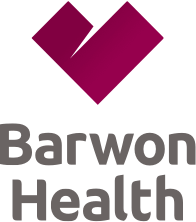Hospital in the Home offered to mental health clients
Specialist support in the comfort of home is changing the way people are treated with acute mental illness, thanks to a Victoria-first Hospital in the Home (HITH) program at Barwon Health.
Since April 2021, a multi-disciplinary team has provided an alternative option to hospital admission for those experiencing an acute episode of mental illness.
With “nine beds” now available, an average of 18 people a month are receiving intensive, specialist mental health support and treatment in their home environment, alongside their family and carers.
Geelong resident Jac Kirkman avoided a second admission to hospital after a relapse of her post-partum psychosis earlier this year.
She said her initial mental health episode “really came out of the blue” after the birth of her son two years ago, with no past experience of mental ill-health and no family history to suggest any risk factors.
“At that time, I was so ill that I needed acute care in the Swanston Centre, which was the right place for me in that moment and my experience there was really positive,” she said.
“However, more recently when I had a relapse of psychosis, I had a two-year-old and wasn’t as critically unwell because I had been taught the warning signs that helped me know what to do.
“The psychosis presented as a lot of magical thinking, like I was getting messages from the TV and radio, but this time around I was fortunate to have insight to know that it wasn’t reality.
“I was appropriate for Hospital in the Home - I hadn’t quite lost full contact with reality, but I was having lot of difficulty sleeping and I knew that if I couldn’t get a handle on it, I’d get worse and it would become similar to last time where I was hallucinating, hearing voices and seeing things.”
As part of her HITH treatment, Ms Kirkman promptly received two daily visits from a mental health nurse and psychiatrist for several weeks, spending about two hours in total with her and her family each day.
Ms Kirkman said she felt blessed to be involved in the pilot program, receiving compassionate care at home without being separated from her two-year-old son.
“It was incredible and I really felt treated with such dignity, like they had taken on board my views and what I wanted from my care,” she said.
“I would’ve otherwise had to go back into the ward, away from my son and my support system in the community.
“An acute mental health facility isn’t necessarily a place you want young children to visit, and it would’ve been difficult for my husband to make time to bring my son in.”
The Deakin University optometry lecturer said she believed her recovery and return to work benefited from the care she received at home.
“Acute care facilities are very important and my experience at the Swanston Centre was really good, but it’s not the right place for everyone who needs care.
“To take someone out of their comfort zone and put them into an adult psychiatric ward can be distressing compared to being treated at home, which isn’t always conducive to rest and recovery.
“I’m a health professional myself and have to say I thought I understood what mental health issues were, but to actually experience it has made me a better practitioner and an insight into how we can improve the health system to improve mental illness.”
Mental Health HITH nurse unit manager Emily Fryman said feedback had shown that culturally-appropriate treatment and care for the entire family promotes prompter recovery, as well as a more sustainable recovery that can strengthen family relationships.
“Feedback shows that individuals can eliminate the need for hospital admission, or significantly reduce the length of stay in hospital by engaging with the MH HITH program and receiving the intensive support that they need without having to leave home,” she said.
“It is our hope that every person in our region requiring assistance with their mental health can have the option of receiving specialised, individualised care that works specifically to bring recovery and hope to their health and wellbeing, via the MH HITH initiative. It is what our community needs, and deserves.
“The ultimate goal is for people and their families to receive the right care, at the right time, in the right place for them, so that they can be on the road to recovery as soon as possible, with minimal interruption to their lives.”
Filter by tags
- University Hospital Geelong
- barwon health
- Emergency Department
- Geelong
- mental health
- Deakin University
- research
- funding
- community
- cancer
- careers
- Barwon Health North
- Andrew Love Cancer Centre
- surgery
- Norlane
- Northern Suburbs
- safety
- McKellar Centre
- rehabilitation
- women's health
- jobs
- awards
- kidney
- Barwon Health Foundation
- CEO
